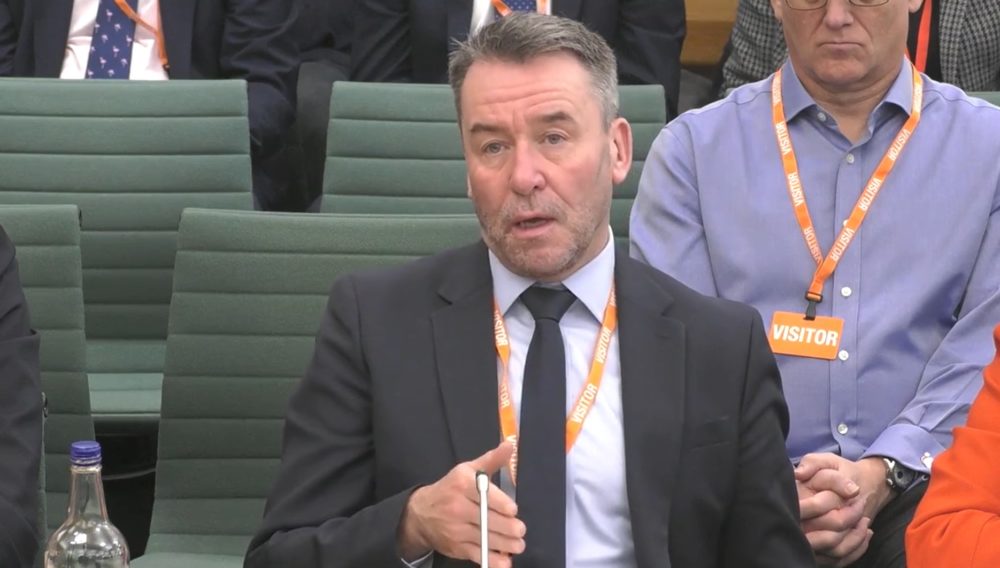UK Government still does not know how much HS2 will cost, MPs told

Downing Street insisted the Government was working to get HS2 under control as officials admitted they did not know how much it would cost or when it would be completed.
In a report released on Monday, HS2 Ltd estimated that the cost of building the railway would be between £54 and £66 billion in 2019 prices – between £67 and £83 billion in current prices.
But appearing before the Commons Public Accounts Committee on Thursday, the Department for Transport’s top civil servant said these figures were not “reliable” and an agreed estimate was unlikely to be produced until “well into 2025”.
‘Great regret’
Dame Bernadette Kelly said: “I say with great regret, sitting before the committee, that is the situation.”
Both the department and HS2 Ltd have committed to a “reset” of the project in order to control costs and establish a more accurate baseline for assessing performance, while Downing Street said it had already made announcements to get the project under control.
The Prime Minister’s official spokesman said: “The Transport Secretary has asked HS2 to urgently provide updated and clearer estimates of the project as soon as possible, and we’ve made it the number one priority of the new chief executive to drive these costs down.”
He added that the most recent estimates from HS2 Ltd had been made “ahead of the rebaselining work that has been commissioned” and before the Government’s “fresh announcements to get this project under control under new leadership”.
‘Systemic problems’
Speaking to the Public Accounts Committee, HS2 Ltd’s new chief executive, Mark Wild, said there were “systemic” and “enduring” problems that had contributed to the project’s spiralling costs, including starting construction too early, not managing risks properly and making incorrect assumptions about productivity.
He suggested work to reset HS2 would be a complex process that would not be complete until 2026.
Mr Wild also declined to name a date by which there would be a functioning high-speed railway between Euston and Birmingham, saying timelines for delivering the railway were “under pressure”.
He said: “You would hope that in the 2030s you would have a functioning railway, but the truth is I do need to do the work.”
Dame Bernadette agreed timelines for running trains between Old Oak Common, in west London, and Birmingham by 2032 were “under pressure” but the “outer limit” of 2036 for running Euston services was still achievable.
Summing up Thursday’s evidence session, Public Accounts Committee chairman Sir Geoffrey Clifton-Brown said: “We don’t know when the reset is going to take place, we don’t know what the cost is going to be, and we don’t know when it is likely to come into operation.”
‘Bat shed’
Meanwhile, Mr Wild declined to apologise for the £100 million bat “shed” built by HS2 in Buckinghamshire, saying it was a legal requirement.
The structure was criticised by the outgoing chair of HS2, Sir Jon Thompson, who said there was “no evidence that high-speed trains interfere with bats”, and has become emblematic in some quarters for the burdens placed on infrastructure projects by planning laws.
Asked if he wanted to apologise for the structure, Mr Wild told MPs that he could “understand why that would raise public concern”, but added: “The law says that we must mitigate damage, harm, to protected species”.
He said: “I can’t apologise for complying with the law. This structure is the most appropriate.
“It is an extraordinary amount of money but it is in the context of a scheme that is costing tens of billions and it’s built for 120 years.”
Dame Bernadette said the Department for Transport and the Treasury had “challenged” the building of the bat tunnel, but found it was “the most efficient remedy” for protecting the species.
Support our Nation today
For the price of a cup of coffee a month you can help us create an independent, not-for-profit, national news service for the people of Wales, by the people of Wales.






As an occasional student of railway history, I cannot understand why, given that in Victorian times such a large amount of railway infrastructure was built so quickly, Britain is seemingly unable to build railways more quickly. A great deal of motorway was built in the 1970s/1980s so even then it was possible to do stuff quickly here. Is the problem that all these private contractors (that have to be used) have senior teams who spent too much time on working out how to maximize their bonuses rather than on how to build bridges and tunnels?
And it never will! The disruption to lives and environmental damage will never be known or added in.